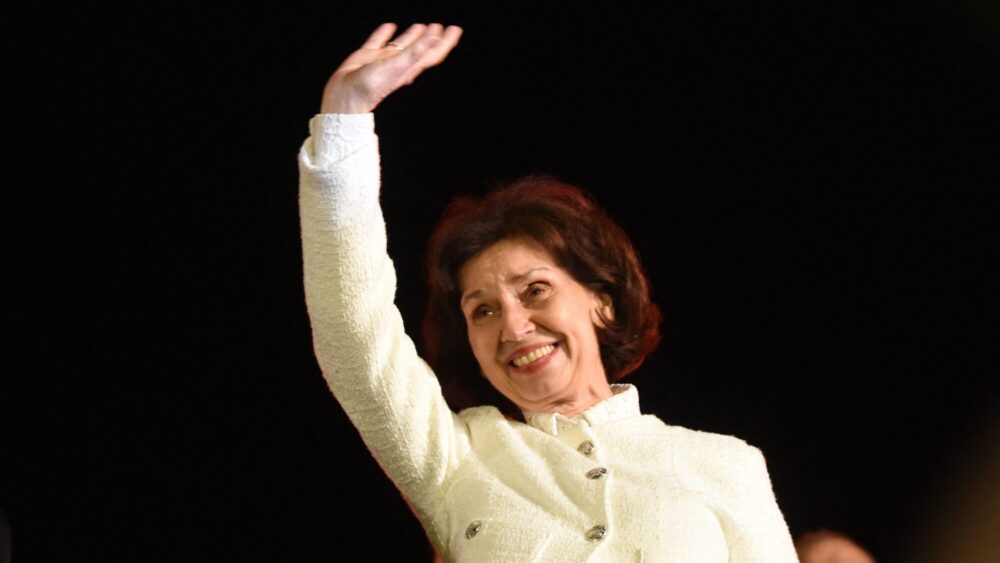
Gordana Siljanovska Davkova
Robert ATANASOVSKI / AFP
A candidate affiliated to the Republic of North Macedonia’s main conservative opposition party has won the country’s first round of presidential elections on Wednesday, April 24th, claiming 41.2% of the total votes.
Lawyer and university professor Gordana Siljanovska-Davkova, part of the Internal Macedonian Revolutionary Organization–Democratic Party for Macedonian National Unity (VMRO-DPMNE) beat the ruling social democrat (SDSM) party’s candidate, incumbent President Stevo Pendarovski, who finished with only 19.9%. As no candidate received over 50% outright, the two are heading for a run-off election on May 8th—the same day as the high-stakes parliamentary election takes place.
Popular aspirations to overturn socialist rule were also reflected in the turnout, which—at 49.9%—was unusually high for a presidential race, exceeding figures from four years ago by eight points.
The results provide a good indicator of what’s to come in two weeks from now when the country elects a new parliament. The national conservative forces have every chance to take back power, after having been unseated in 2016 by the current socialist-led five-party leftist coalition.
Siljanovska-Davkova, preparing to soon become North Macedonia’s first-ever female president, called the election results “inspiring” in her victory speech on Wednesday night. Although she spent most of her career in academia—teaching constitutional law at Skopje University—she also has political experience as she served as minister two decades ago and later held positions at the Council of Europe and the Venice Commission.
Furthermore, this is not the first time Siljanovska-Davkova fought Pendarovski for the presidency. In 2019, the two were nearly tied in the first round—the socialist candidate received 44.8% compared to the conservative professor’s 44.2%—with the latter narrowly carrying the final vote with 53%.
The current margin, however, hardly leaves room for speculation, promising a successful parliamentary race for VMRO-DPMNE and its conservative allies too. “This is the beginning of a new era,” Siljanovska-Davkova said in her speech, promising to enact change in her “own way.”
In his late-night address, the defeated incumbent president admitted that the results were unexpected, but it didn’t mean the fight was over.
Penderovski’s campaign—like the ruling social democratic bloc itself—heavily relies on the promise of EU integration. He accuses conservatives of hindering the accession process by refusing to concede to EU-member Bulgaria, which demands constitutional assurances of minority protection—all while using its veto against North Macedonian membership.
There is currently a 3,500-strong ethnic Bulgarian community, representing just 0.2% of North Macedonia’s population.
